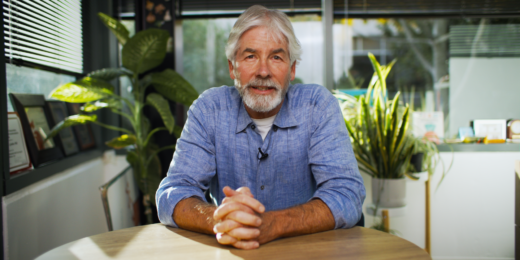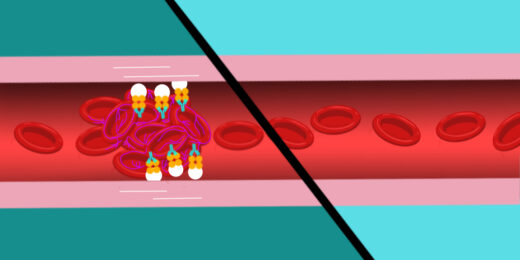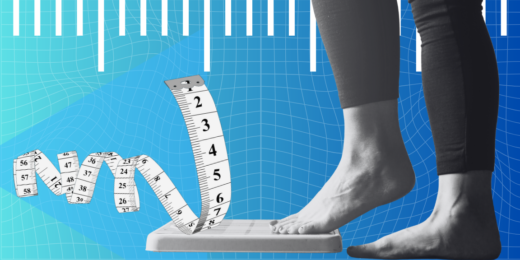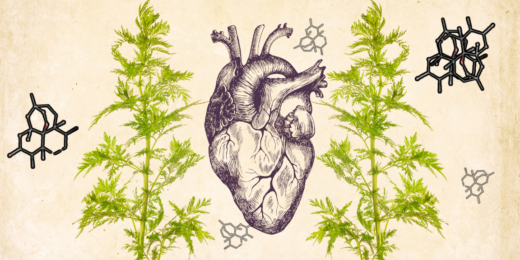When new or expectant mothers experience depression in the peripartum period, serious problems can manifest for those children down the line.
Category: Stanford Medicine
Tumbling stem cells? Watch how movement plays a part in their fate
Stanford Medicine researchers recorded stem cells performing a previously unknown type of movement, dubbed cell tumbling, which may help them differentiate.
More beans, peas, lentils: A nutrition expert’s take on new guidelines
Americans are not eating well, Stanford Medicine's Christopher Gardner says, but he is hopeful that encouraging patterns of eating — such as the Mediterranean diet — will help us improve our habits.
Meet the doctor tackling harassment, abuse, inequity in sports
Yetsa Adebodunde Tuakli-Wosornu, who wouldn’t be the person she is today without sports, led the charge for a new and improved International Olympic Committee consensus statement on interpersonal violence and safeguarding in sports.
Optimizing the telehealth experience could benefit patient, physician
Stanford Medicine's Kevin Schulman says digitally enabled care (DEC) would ease clinical workload and improve services for patients beyond virtual visits.
How this doctor is combatting a gravely serious clotting condition
Giselle Salmasi’s collaboration with a colleague at the Mayo Clinic gives a patient with a recently identified blood clotting disease a new lease on life.
Ask me anything: What to know about hearing loss
What actually causes hearing loss? Are there new treatments that can restore hearing? Can it be reversed? How does air travel affect hearing loss?
What’s the deal with BMI, aka body mass index?
Some researchers and clinicians are questioning the value of the body mass index, which estimates a person’s body composition. But do better alternatives exist?
Stanford Medicine launches new podcast, Health Compass
New Stanford Medicine podcast, Health Compass, focuses on the crucial research and important researchers moving health topics forward.
How supporting family, along with patients, became part of hospital’s mission
When the new Stanford Hospital opened five years ago, a carefully designed third-floor resource center gave for those caring for loved ones an important safe haven.
Biodesign cultivates community partnerships to broaden understanding of health equity
Biodesign program aims to ensure all trainees have a better understanding of health equity and appreciate the ways in which new technologies can widen or narrow the gaps in access to care.
Old drug, new discovery: Scientists find novel use for ancient malaria remedy
Stanford Medicine researchers on the hunt for an elusive cardiac fibrosis drug were surprised when a malaria drug with ancient origins emerged as their top candidate.
A doctor, his cancer journey and a uniquely teachable moment
Bryant Lin has taken his diagnosis of stage IV ‘never-smoker’ lung cancer, which disproportionately affects those of Asian descent, and turned it into a medical school course. He hopes the world takes notes along with the students and Stanford Medicine community.
Stanford Medicine experts help Nobel winner custom design proteins for COVID-19 therapy
Custom designing proteins — a breakthrough recognized by the latest Nobel Prize in chemistry — could yield treatments that stop the worst of COVID-19 before it begins.
The cells that stoke the imaginations of Stanford Medicine scientists
Our researchers picked cells from all over the human body — cells of all shapes, sizes and abilities. From the brain to the heart to the intestines.
California excels at screening babies for main cause of childhood blindness
Vision damage from a complication of premature birth can be halted if it’s caught soon enough — and a California Perinatal Quality Care (CPQCC) and Stanford Medicine-led study shows the state’s screening process is helping close racial gaps.

















